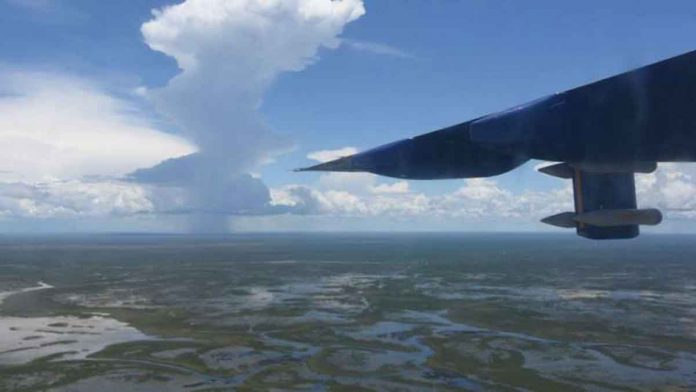Since 2007, the world’s atmospheric methane concentration has increased rapidly, but scientists aren’t sure why. This is a problem because methane is an extremely powerful greenhouse gas. During its first 20 years in the atmosphere, it has more than 80 times the warming power of carbon dioxide, and it is responsible for roughly 30% of global warming since preindustrial times.
Scientists are attempting to collect more accurate measurements of methane’s sources, both human and natural, in order to better understand the recent rise and how to mitigate it. Shaw et al. discover in a new study published in Global Biogeochemical Cycles that tropical wetlands, which account for roughly one-fifth of global methane emissions, emit significantly more methane than previously thought.
Methane emissions from tropical wetlands have received little attention, particularly in Africa. The researchers set out to fill this data gap by conducting the first-ever airborne surveys of methane released from Zambian wetlands, focusing on three of the country’s largest wetland areas: Bangweulu, Kafue, and Lukanga. To collect environmental data, they used the United Kingdom’s Facility for Airborne Atmospheric Measurements, a British Aerospace 146 aircraft outfitted with a scientific measurement laboratory. They used three methods to estimate methane emissions at each wetland site: airborne mass balance, airborne eddy covariance, and atmospheric inversion.
Whereas models predicted emissions of 0.6-3.9 milligrams per square metre per hour from these wetlands, the researchers’ direct observations revealed a different story. The measured methane emissions were an order of magnitude higher, at 5-28 milligrammes per square metre per hour.
If these findings are replicated in other understudied tropical wetlands, they suggest that Global Carbon Project models significantly underestimate wetlands’ contributions to global atmospheric methane. This is especially concerning because climate change may cause a feedback cycle in which rising temperatures and increased rainfall cause wetlands to release even more methane. In that scenario, countries will need to reduce human-caused greenhouse gas emissions far more than current estimates suggest in order to meet the Paris Agreement goal of keeping global warming to less than 2°C relative to preindustrial times.

